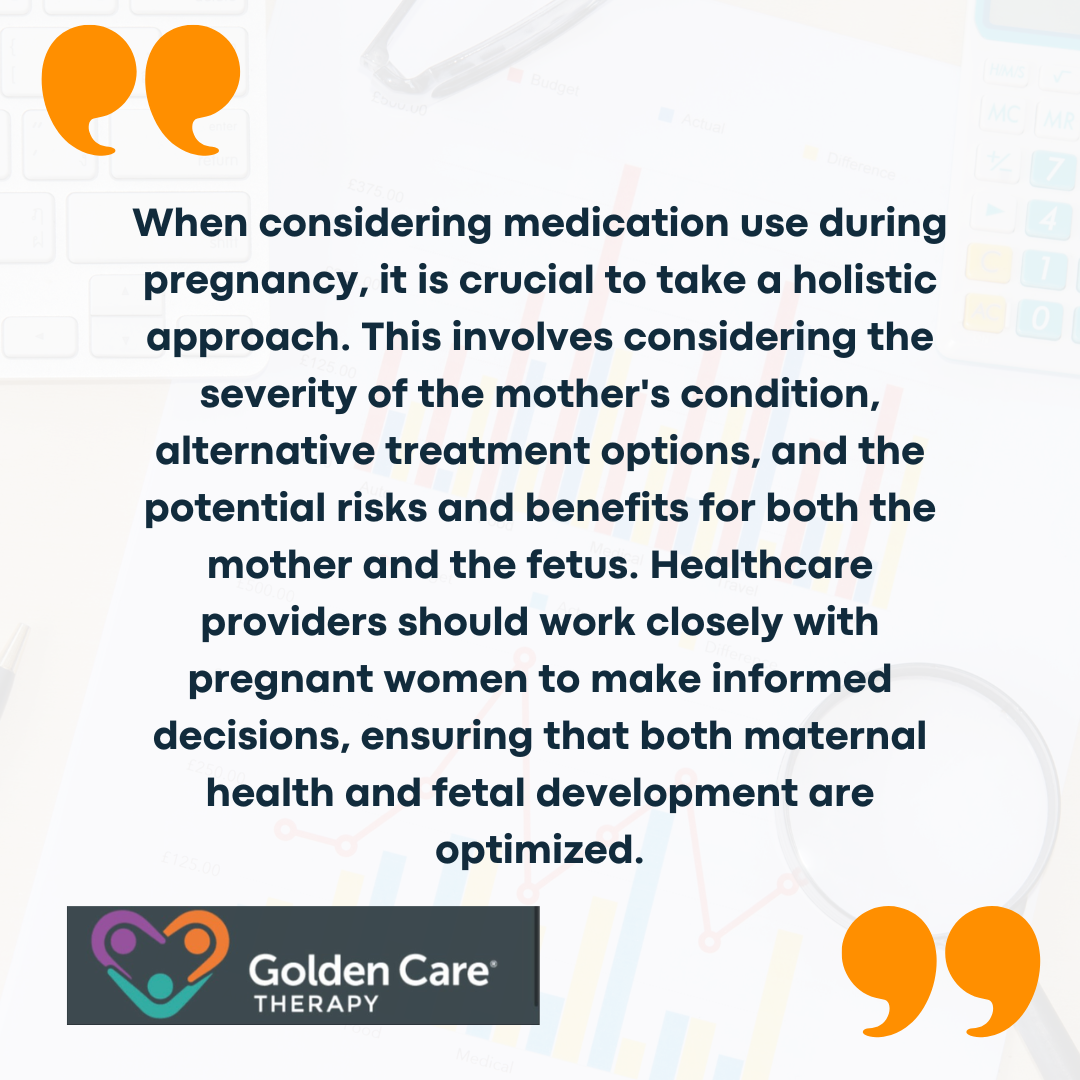The exact causes of autism are not entirely understood, but it is widely accepted that both genetic and environmental factors play a role. One of the environmental factors that have garnered significant attention is the use of certain medications during pregnancy.
Understanding how these medications might influence the development of autism is crucial for expecting mothers and healthcare providers.

What Medications Cause Autism During Pregnancy?
The idea that certain medications taken during pregnancy can cause autism has been a topic of significant debate and research. Some studies have suggested a potential link between the use of specific medications during pregnancy and an increased risk of autism spectrum disorder (ASD) in children.
For instance, the use of valproate, an anticonvulsant medication used to treat epilepsy and bipolar disorder, has been associated with a higher risk of autism when taken during pregnancy.
Additionally, some research indicates that the use of selective serotonin reuptake inhibitors (SSRIs) for treating depression during pregnancy may be linked to an increased likelihood of autism in children, although the evidence is not conclusive, and further studies are needed to establish a definitive connection.
It’s crucial to understand that the exact causes of autism are complex, involving a combination of genetic, environmental, and possibly prenatal factors. While some medications may be associated with a higher risk, they do not directly cause autism. Pregnant women should not abruptly stop taking prescribed medications without consulting their healthcare providers, as the benefits of managing certain health conditions can outweigh potential risks.
Healthcare professionals can provide guidance on the safest treatment options during pregnancy to ensure the health and well-being of both the mother and the developing baby.

The Role of Medications in Pregnancy
Pregnancy is a critical period of development for the fetus. During this time, the fetus is particularly vulnerable to external influences, including medications taken by the mother. Some medications have been identified as potentially increasing the risk of autism when used during pregnancy.
Let’s take a look at what these are.
Antidepressants
Selective Serotonin Reuptake Inhibitors (SSRIs) are commonly prescribed antidepressants. They are often used to treat depression and anxiety, which can also occur during pregnancy. Several studies have explored the potential link between SSRI use during pregnancy and an increased risk of autism in children.
A study reviewed various research findings on this topic. It found that while some studies suggest a modest increase in autism risk associated with prenatal exposure to SSRIs, others do not support this association. For instance, a meta-analysis highlighted that maternal use of SSRIs, especially during the first trimester, was associated with a slightly higher risk of autism in children. However, the absolute risk increase was relatively small.
The potential mechanism behind this association is thought to involve serotonin, a neurotransmitter that plays a crucial role in brain development. SSRIs work by increasing serotonin levels in the brain, which could potentially disrupt normal brain development processes in the fetus.
Despite these concerns, it is essential to weigh the benefits of treating maternal depression against the potential risks to the fetus. Untreated depression can have severe consequences for both the mother and the baby, including preterm birth and low birth weight.
Antiepileptic Drugs
Antiepileptic drugs (AEDs) are used to manage epilepsy and other seizure disorders. Some AEDs, such as valproate, have been linked to an increased risk of autism and other neurodevelopmental disorders when used during pregnancy.
Research has shown that valproate exposure in utero is associated with a significantly higher risk of autism. A landmark study reported that children exposed to valproate in the womb had a sevenfold increased risk of developing autism compared to those who were not exposed. The exact mechanism is not fully understood, but it is believed that valproate may interfere with normal brain development by affecting gene expression and neural cell differentiation.
Given these risks, guidelines recommend that valproate should be avoided during pregnancy whenever possible, and alternative medications should be considered. However, for some women with severe epilepsy, valproate may be the only effective treatment. In such cases, careful monitoring and the lowest effective dose are crucial to minimize risks.
Analgesics
Pain management during pregnancy is another area of concern, particularly the use of acetaminophen (paracetamol). Acetaminophen is widely used for pain relief and fever reduction during pregnancy because it is generally considered safe. However, emerging research has raised questions about its potential link to autism and attention deficit hyperactivity disorder (ADHD).
A study highlighted by the Cleveland Clinic examined the association between prenatal acetaminophen exposure and the risk of autism. It found that prolonged use of acetaminophen during pregnancy was associated with a higher risk of autism and ADHD in children.
The proposed mechanism involves oxidative stress and disruption of the endocrine system, which could potentially affect fetal brain development.
Despite these findings, the overall evidence is still inconclusive. The potential risks must be balanced against the benefits of managing pain and fever during pregnancy. Fever itself can be harmful to the fetus, so untreated fever might pose a greater risk than the cautious use of acetaminophen.
Other Medications and Considerations
Aside from SSRIs, AEDs, and acetaminophen, other medications have also been studied for their potential impact on autism risk. For example, certain antipsychotic medications and corticosteroids have been investigated, but the evidence is less clear.

Genetic and Environmental Interactions
It is important to note that while medications may contribute to the risk of autism, they are not the sole factor. Autism is a multifactorial condition, meaning that multiple genetic and environmental factors interact to influence its development.
Genetic predisposition plays a significant role in autism. Studies have identified numerous genes associated with autism risk, many of which are involved in brain development and function. Environmental factors, such as maternal infections, nutritional deficiencies, and exposure to environmental toxins, can also contribute to the risk.
The interaction between genetic and environmental factors is complex. For example, a mother with a genetic predisposition to autism may be more susceptible to the effects of certain medications during pregnancy. Similarly, environmental factors may exacerbate genetic vulnerabilities, increasing the overall risk.
Importance of Personalized Care
Given the complexity of autism’s etiology, personalized care is essential. This involves tailoring treatment plans to the individual needs of the mother and the developing fetus. Healthcare providers should consider the mother’s medical history, the severity of her condition, and the potential risks and benefits of different treatment options.
For pregnant women with depression or anxiety, non-pharmacological treatments such as psychotherapy and cognitive-behavioral therapy (CBT) may be effective alternatives to medication. These approaches can help manage symptoms without exposing the fetus to potential risks associated with medications.
For women with epilepsy, careful monitoring and dose adjustments of antiepileptic drugs can help minimize risks. Alternative medications with a better safety profile during pregnancy should be considered whenever possible. Regular prenatal check-ups and close collaboration between neurologists and obstetricians are crucial in managing these cases.

Research and Awareness
Ongoing research is essential to deepen our understanding of the potential links between medication use during pregnancy and autism. Large-scale, well-designed studies are needed to provide more definitive answers and to identify underlying mechanisms. Increased awareness among healthcare providers and pregnant women about the potential risks associated with certain medications can also lead to more informed decision-making.
Furthermore, it is important to communicate research findings in a way that is accessible and understandable to the general public. Misinterpretation of scientific studies can lead to unnecessary fear and anxiety. Clear, evidence-based information can help expecting mothers make informed choices about their healthcare.
While some medications used during pregnancy have been associated with an increased risk of autism, it is important to approach this issue with caution. The decision to use medication during pregnancy should be based on a careful consideration of the potential risks and benefits, taking into account the individual circumstances of the mother and the fetus.
As of now, ongoing research and increased awareness are essential to enhance our understanding of autism’s etiology and to ensure the best possible outcomes for both mothers and their children. For those seeking the best ABA therapy in New Jersey, New York, Georgia, and Indiana, Golden Care Therapy offers exceptional services. Contact us today to learn more or book an appointment.
Sources:
https://www.mdpi.com/1660-4601/21/3/244
https://www.thetransmitter.org/spectrum/taking-meds-during-pregnancy-brings-autism-risk-benefits
https://health.clevelandclinic.org/pregnancy-does-acetaminophen-heighten-risks-for-autism-adhd



